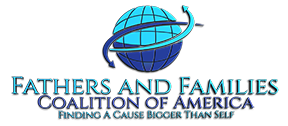Posts
The Integration of Responsible Fatherhood within Foster Care System
Model Integration and Capacity Building Initiative: A Process for Assimilating Responsible Fatherhood within Children, Youth, and/or Family Systems of Care
By
Dr. Rufus Sylvester Lynch, ACSW, Chair, The Strong Families Commission Incorporated & Senior Advisor to Fathers & Families Coalition of America - National Chair, Affiliate Development, Philadelphia, PA
The Integration of Responsible Fatherhood within Foster Care Service Delivery and Other Children and Youth Servicing Systems” is a research, policy change, and practice enhancement project, designed to be a multi-faceted agency initiative, that utilizes evidence based learning, reciprocal knowledge building and exchange, advocacy, collaboration, systems integration, agency self-assessment and evaluation, model development, responsible fatherhood training and curriculum design, technical assistance in the form of individual agency consultation for capacity building, as well as agency and system policy and practice change. The principal objective of the project is to strengthen the capacity of a select group of children, youth, and family service organizations to increase and sustain their involvement of Fathers in the lives of their children, in order to prevent and/or reduce their long term system involvement, through quality Father Engagement philosophies, policies, procedures, and protocols that improve child well-being and permanency case planning, where needed. The blueprint for the project has a total of ten goals, with an equal number of anticipated outcomes associated with those goals, evaluative strategies that accompany the goals, and performance measures to judge the success of the goals. The primary and most immediate goal is to champion the conversation and build an awareness of the value of Responsible Fatherhood within foster care service delivery and other children and youth servicing systems, through the initiation of the much needed dialog, by and among children, youth, and family focused agencies, regarding the value of safe father involvement to enhance the well-being of children in cross-systems of care. The research approach utilized is participatory action research. A Results Based Accountability Framework will be utilized to measure the overall success of the Project. To document organizational effectiveness and capacity growth made by individual agencies the DAPIM (Define, Assess, Plan, Implement, and Monitor) Framework will be utilized. Learn more how to implement a new model of expanding the capacity of your organization contact Dr. Rufus Lynch The Strong Families Commission Incorporated 215-879-1745 E-Mail Address:

